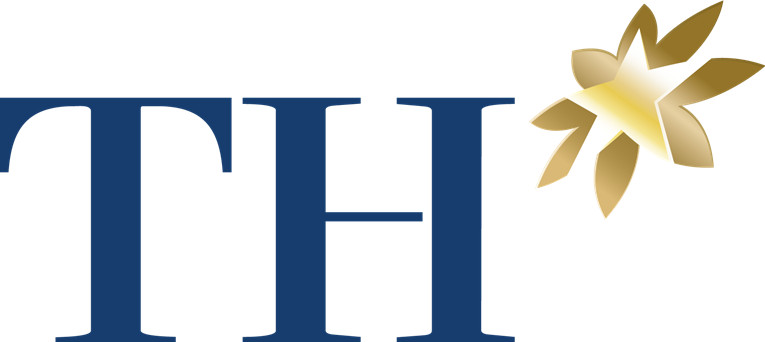Open door for Vietnamese goods to enter the Middle East
On October 29, Prime Minister Pham Minh Chinh left the UAE for Saudi Arabia on a trip to three Middle Eastern countries.
Vietnamese lemons are sold at a supermarket in Saudi Arabia - Photo: NGOC AN
With the Comprehensive Economic Partnership Agreement (CEPA), the Middle East market is more open to Vietnamese goods thanks to tax reductions and extensive cooperation commitments.
With the signing of CEPA and the reduction of up to 99% of tax according to the roadmap, many of Vietnam's strong export products to the UAE in particular and the Middle East in general will have more advantages. Among them, advantageous products such as agriculture, especially high-quality agricultural products, clean and organic products with Halal certification, textiles, footwear, electronics, seafood, wooden products, etc.
Benefits of tax reduction
At a large supermarket in the capital Riyadh, many agricultural products from many countries are displayed on the shelves. A Saudi Arabian citizen chooses to buy fresh lemons from Vietnam. This person said that fresh Vietnamese lemons are not too big in size and have a lot of water, so he likes to buy them. However, compared to the markets of countries such as China, Thailand, Malaysia, etc., the presence of Vietnamese fruits in the Middle East is still quite modest.
VinFast expands market in the Middle East
Exploiting the Middle East 'gold mine'
Mr. Dang Phuc Nguyen, General Secretary of the Vietnam Fruit and Vegetable Association, said that fruit export turnover to Saudi Arabia, UAE and other Middle Eastern countries is still modest but is growing positively. These countries prefer citrus fruits with lots of water to cool down, such as oranges, lemons or fresh coconuts...
The advantage is that they do not require as high technical standards as the US and EU. While the US and EU require GlobalGap standards, the Middle East only requires a phytosanitary certificate and meets VietGap standards. In addition, customs clearance conditions and paperwork are much more favorable.
Vietnam's fruit export turnover to the UAE in 2023 is nearly 60 million USD, up 30% this year (the first nine months of the year reached 51 million USD), and to Saudi Arabia it reached 10.9 million USD.
Considered a niche market with great potential, it still faces many challenges. In fact, some businesses exporting to the Middle East are concerned that payment is not guaranteed, and that shipping across the Red Sea can be risky. Vietnamese fruits also have to compete with goods from China, Thailand, Malaysia, etc.
Capacity building requirements
According to the leader of the Department of Asian and African Markets (Ministry of Industry and Trade), the main export items from Vietnam include agricultural products (such as rice, pepper, coffee), processed foods and seafood which are strongly consumed in Saudi Arabia.
The country’s large demand for agricultural and food products, seafood and Halal food is an opportunity for Vietnam to boost exports. This is also a market with diverse needs for importing consumer products, industrial products and construction materials.
Meanwhile, with the advantage of being one of the major commercial centers in the Middle East, the UAE will also help Vietnamese businesses expand export channels and promote key products such as agricultural products, Halal food, seafood and consumer goods.
Although CEPA will support the growth of exports of Vietnam's key products, the leader of the Ministry of Industry and Trade noted that the Middle Eastern market is highly competitive, so Vietnamese enterprises must improve production capacity and meet stricter requirements on quality and Halal certification to capture the market.
Two funds worth over 1,100 billion USD want to invest in Vietnam
Before leaving the UAE for Saudi Arabia to visit the kingdom and attend the 8th Future Investment Initiative (FII) Conference on October 29 and 30, Prime Minister Pham Minh Chinh received leaders of many UAE investment funds.
Sheikh Hamed Bin Zayed Al Nahyan, Director of the Abu Dhabi Investment Authority (ADIA), which manages assets of approximately 830 billion USD and is the fourth largest investment fund in the world, shared plans to seek investment opportunities and expand relations with Vietnam; affirming that ADIA's strategy is to invest with a long-term commitment, helping Vietnam build and develop investment funds.
Meanwhile, Sheikh Mansour bin Mohammed bin Buti Al Hamed - CEO of Mubadala Group, one of the world's largest corporations and state investment funds with total assets of about 300 billion USD - said that he will invest more in Asia, focusing on the fields of infrastructure, oil and gas, seaports, electricity, technology, and roads. He wants to discuss specifically with the Vietnamese side about possible projects, especially with the Vietnam Oil and Gas Group.
The Prime Minister said he will assign a minister to coordinate cooperation with the UAE. In the immediate future, the Ministry of Industry and Trade (on energy and trade), the Ministry of Planning and Investment (on investment funds), the Vietnam Oil and Gas Group, and the State Capital Investment Corporation will contact and discuss with these corporations to carry out specific work.
Thuy Linh



